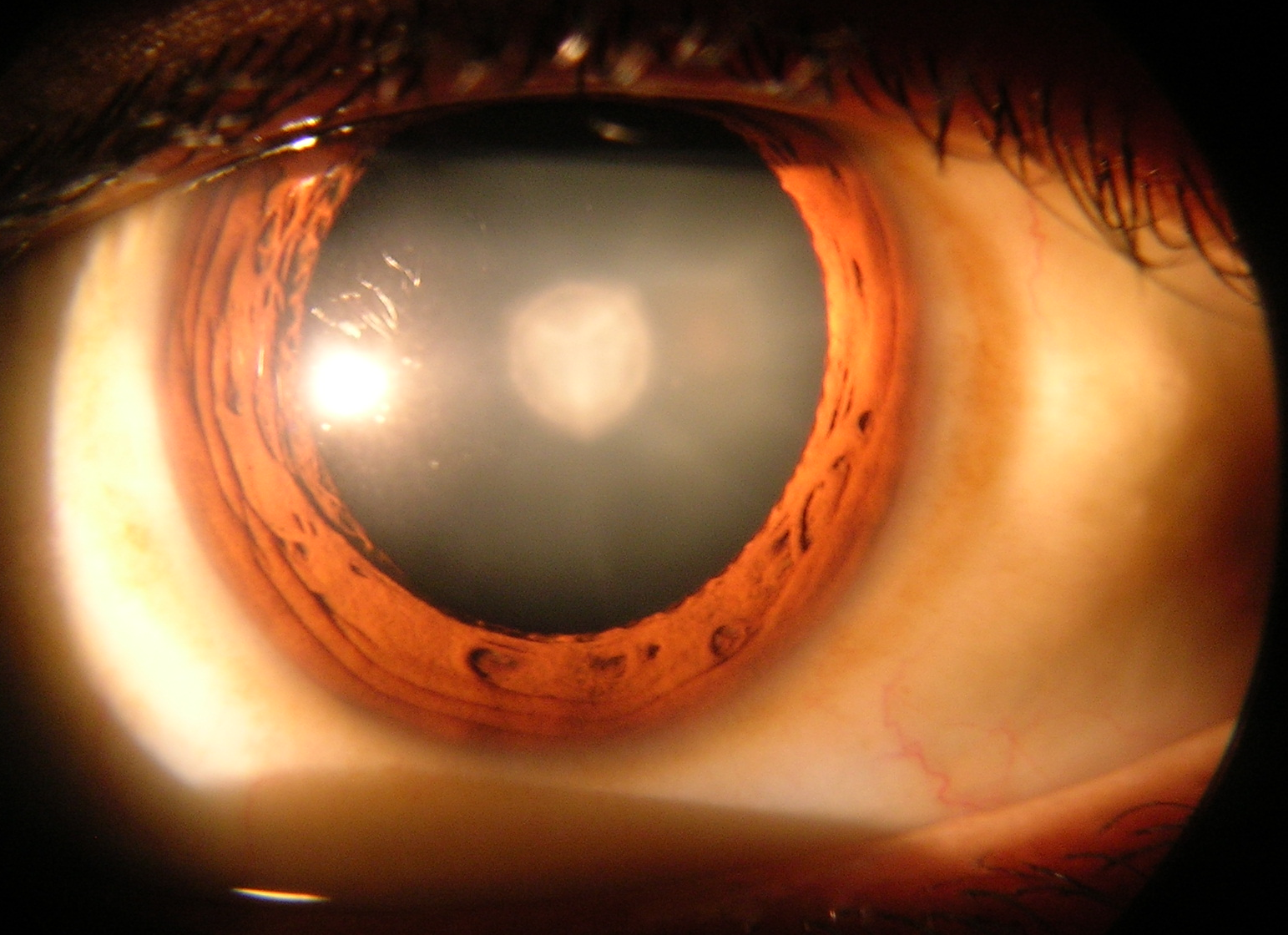

Cataracts is what is knownas theclouding of te clear lense of the eye. The lens is made of mostly water and protein. The protein is arranged in a specific way that keeps the lens clear and allows light to pass through it to focus a clear image onto the retinal surface. As we age, some of the protein may clump together and start to cloud a small area of the lens. This is our understanding of the cause of an age-related cataract. Over time, the cataract may become more dense or cloud more of the lens, making it more difficult to see through. A cataract is not a growth or tumor.
There are many causes of non age-related cataracts or secondary cataracts. Secondary cataracts are a result of similar changes to the protein of the lens, also resulting in visual blurring or visual loss.
Blunt or penetrating injury to the eye may cause secondary cataracts, either immediately after the injury or some weeks to years afterward. A cataract following an injury may appear and then not increase in density (be stationary) or be progressive. Eye surgery for other conditions can also cause cataracts. Excessive exposure to ionizing radiation (X-ray), infrared radiation (as in glass blowers), or ultraviolet radiation cause secondary cataracts.
Diabetes is associated with the development of secondary cataracts. Inflammatory disease of the eye, such as iritis or uveitis, may cause or accelerate the development of cataract in the involved eye.
There are many genetic illnesses that are associated with the development of secondary cataracts. These include myotonic dystrophy, galactosemia, homocystinuria, Wilson's disease and Down syndrome, plus many others. Congenital infections with herpes simplex, rubella, toxoplasmosis, syphilis, and cytomegalic inclusion disease may also result in cataracts.
There are many medications which, when taken over a long period of time, can cause secondary cataracts. The most common of these are oral corticosteroids, such as prednisone, which are used for a wide variety of medical conditions.
The term "congenital cataract" is used when a baby is born with any clouding of the lens. This may be present in one or both eyes, be stationary or be progressive. Causes include genetic disorders or intrauterine developmental disorders, both often associated with other physical abnormalities of the baby.
Atopic dermatitis, other diseases of the skin and mucous membranes, hypothyroidism, and hyperparathyroidism are associated with the early development of cataracts.
Patients who develop cataracts in both eyes at an early age often have family members who have also developed cataracts prematurely, implying a genetic cause, even in the absence of a recognized underlying disease.
there is no cure for cataracts the only option is undergoing cataract surgery. In which the lens is removed and an artifical lense is inserted in place of the old lense.
 If the cataract is not taken care of the brain will shut off the use of that eye. This is because the blurred vision will cause constant headaches thus causing the brain to shut it off. To reduce the pain.
If the cataract is not taken care of the brain will shut off the use of that eye. This is because the blurred vision will cause constant headaches thus causing the brain to shut it off. To reduce the pain.





